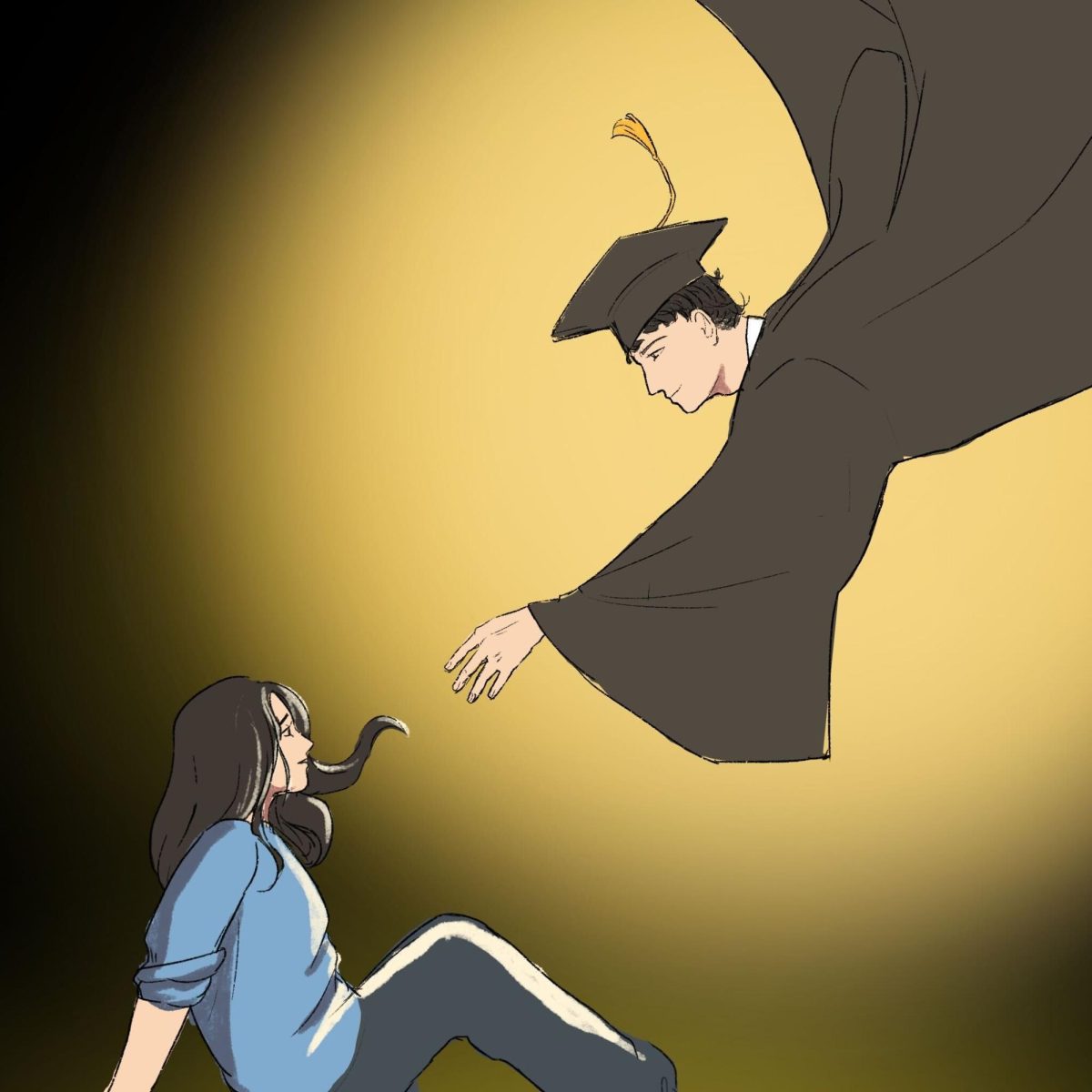Editor’s Note: A previous version of this story reported that Patricia Szczepanski is a member of the Osher program and has taken writing classes. This is not true, as she is the Program Assistant for Osher and has not taken writing classes through the program. Further, The Pitt News reported that Osher’s annual fee is $125. It is $225. Finally, The Pitt News attributed the ending quote to Szczepanski, but it was taken from a sign on her desk. The story has been updated to reflect these changes. The Pitt News regrets these errors.
As a first-year at Pitt in 1968, Larry Flatley had no idea what his future held or that he would return to the same classrooms and professors 45 years later.
But here he is. Sitting in a University classroom again at the age of 66 as a member of Pitt’s Osher Lifelong Learning Institute, he and his “50 and better” peers soak up lectures, head out on educational field trips and pick their schedules from any of 90 classes — all for an annual $225 membership fee.
Osher is a membership-based community that offers classes, opportunities to audit others, group discussions and special lectures to mature learners. Last year, members ranged from 49 to 102 years old, all taking classes at Pitt to learn something they didn’t have the chance to when they were in school.
In spring of 2005, the Bernard Osher Foundation and the College of General Studies established the program at Pitt. It started with a $1 million endowment when it began and receives the interest on that money, some $35,000, annually. In 2014, the program received another $1 million endowment.
The students aren’t required to have a college degree, but a majority of them do, according to Osher Director Jennifer Engel.
Some, like Flatley, even have one from Pitt.
“They’re not looking at this as something to fill their time. They are living, and they want to make sure they thrive and gain perspective,” Engel said. “During lunch, there can be really heated debates out here where they’re talking and disagreeing, but, at the end, they’ve learned something new and they’re moving on.”
Flatley graduated from Pitt in 1972 after studying political science in preparation for law school. After graduation, he headed to the University of Pennsylvania Law School in Philadelphia. Flatley graduated from both universities with honors.
He returned to Pittsburgh two years later, accepting a position as a corporate litigator at Reed Smith Shaw and McClay, working and traveling the world for 38 years. In the fall of 2012, at age 62, Flatley retired. By the spring term, he was back in the classroom. His wife, Teri, a Pitt grad of 1973, joined him.
In the summer of 2014 the couple took their first two Osher courses together: astronomy, taught by Professor Diane Turnshek, and “Behind the Scenes” at the Carnegie Museums, taught by Robert Gangewere, former editor of Carnegie Magazine.
“In astronomy, we were awestruck by the unfathomable immensity of the known universe,” Flatley said. “We also enjoyed learning about the museums, and we saw some of the Museum of Natural History’s non-public collections.”
Cristina Ruggiero, associate dean of CGS, saw the tremendous possibilities of the Osher program firsthand during the Year of Humanities panel hosted by CGS.
She recognized an opportunity for undergraduates to benefit from Osher members’ experiences in all different fields and industries. Her work with the program has inspired her to someday study Italian language, history and art to better connect with her family in Italy.
“[The Osher program] allows you to see people for who they are,” Ruggiero said. “They’re here because they want to learn. It’s inspiring to see. This place really lives and breathes lifelong learning.”
Program assistant of 11 years, Patty Szczepanski, coordinates trips and handles day-to-day affairs. Members come to her with questions about registration, room locations and how to get identification or forgotten passwords.
Szczepanski, a Duquesne alumnus with an accounting degree, felt pursuing her passion for writing in college was frivolous. She applied to Duquesne just after her father died, and her mother was working to provide for her. She needed a degree that would get her a job. Since graduating, she’s worked for the Pittsburgh Symphony Orchestra and the Manchester Craftsmen’s Guild jazz program.
“Everywhere I went I learned something new,” she said.
As program assistant, Szczepanski plans trips that provide opportunities members might not take themselves. The program offered trips to Fallingwater, the Rock and Roll Hall of Fame and Kentuck Knob, sending members with guides and information.
The dichotomy of working for the program and her experiences taking classes on her own makes Szczepanski more conscious of a mature learner’s presence in the classroom.
“I want to be in class, sit there quietly and be invisible,” she said. “I tend to forget how hard life is for students. They’re working two jobs and going to school and have complicated family lives and existences.”
She’s on their side, though. Some are even friends with her on Facebook. It means a lot to her, Szczepanski said, when they stop by and ask her how she’s doing and what classes she’s taking.
Last semester, she enrolled in a class called “Writer’s Journal” taught by a professor she knew previously. The professor assigned a book that wasn’t really interesting.
None of the other students read the book, but she did. So when the quiz asked what disease killed the main character, Szczepanski had a choice to make. The professor left the room. She chose to be visible.
Szczepanski gave away the answer and when the professor found out, “she was mortified that I would sell her out,” she said. “I told her I’m a student, I’m on their side now!”
In the beginning, Szczepanski feared classes and having strangers read her writing. The Osher program has taught her to embrace every opportunity.
“Always learn,” said a sign above her desk. “Always challenge yourself to learn. Everything you want is on the other side of fear.”



